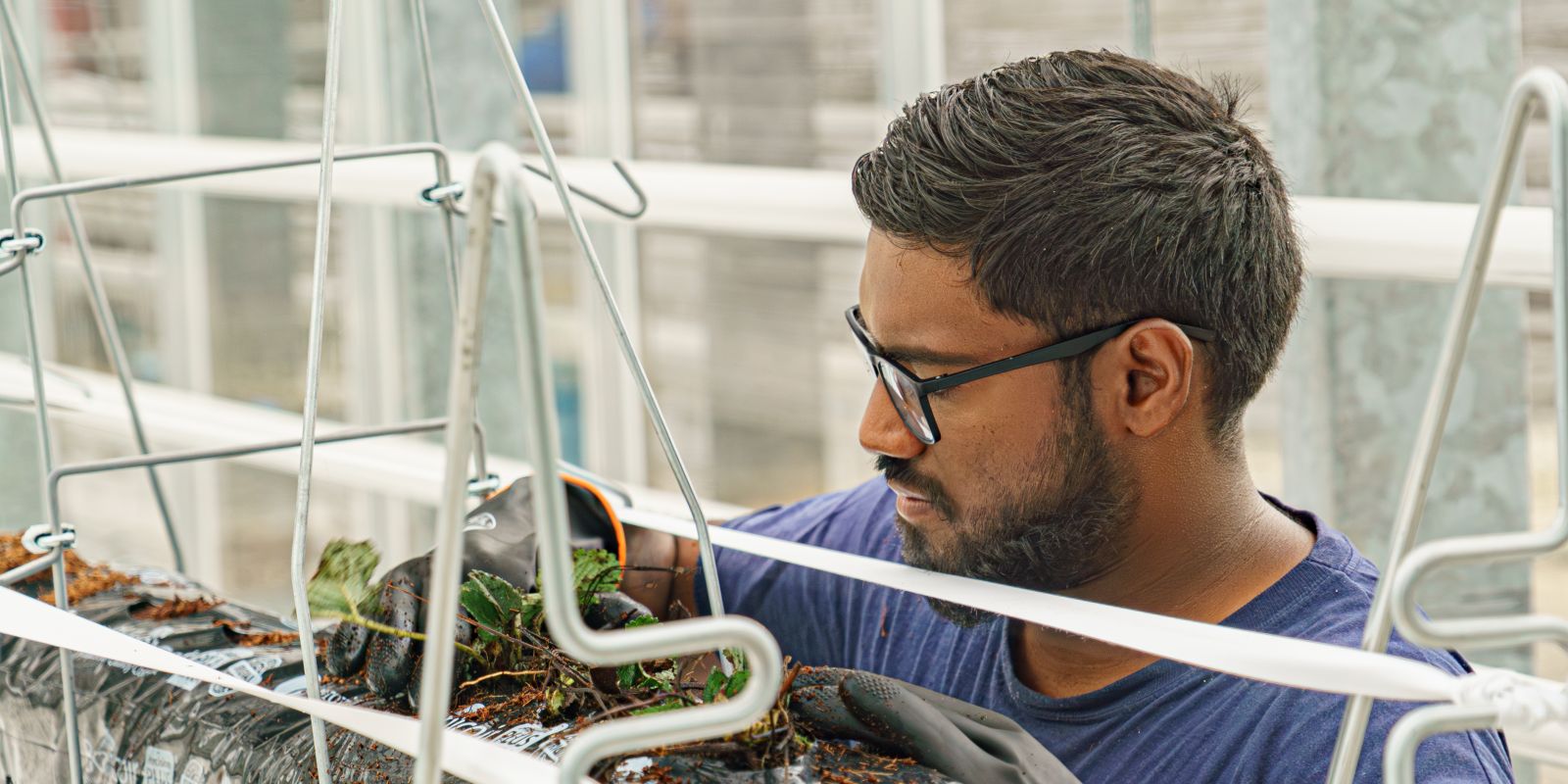GEOTHERMAL GREENHOUSE OPENS AT RISEHOLME
The University of Lincoln’s new £2.4M geothermal R&D glasshouse is a world’s first facility, exploiting Lincolnshire’s geothermal resources and highly advanced glasshouse technologies. The facility focuses on optimising crop efficiency, by targeting improvements in energy and labour costs, the two big determinants of success in the glasshouse sector.
The new glasshouse is located at the University of Lincoln’s Riseholme Park, just north of Lincoln in an area with strong geothermal resources. The glasshouse features four compartments, each 200m², with full environmental control and advanced data monitoring and CO₂ enrichment. It is the UK’s first geothermal greenhouse demonstrator, designed for R&D and commercial proof-of-concept testing. The glasshouse uses 18 x 250m geothermal boreholes, generating 150kW heating and 75kW cooling potential.
The greenhouse will be hosting projects such as GASTRO (Geothermal and Advanced Spectral Technology for Regional Optimisation of greenhouse crop production), which is an 18-month collaborative innovation project led by NFU Energy, in partnership with the University of Lincoln and Pilkington Technology Management Ltd. Project GASTRO uses bespoke NIR glass developed by Pilkington and installed on two of the four compartments, and will:
- Demonstrate how combining geothermal heating and NIR (Near Infra-Red) reflective glass can increase greenhouse crop efficiency, sustainability, and yields.
- Validate the potential energy savings, CO₂ reductions, and crop yield improvements when growing table-top strawberries.
- Develop a commercial geothermal glasshouse design service to support technology roll-out.
The project is aiming to demonstrate how these technologies can deliver benefits including:
- Energy Efficiency - geothermal systems could reduce fossil fuel use by up to 66%, addressing energy cost volatility.
- Climate Resilience - cooling technologies mitigate heat stress on crops, boosting yields and quality, especially under climate change conditions.
- Commercial Impact - demonstration will underpin rollout of new NFU Energy services and Pilkington products, helping growers reduce operating costs.
- Environmental Gains- potential CO₂ abatement of 200–400 tonnes per hectare per year.
- Sector Expansion- enabling growth in glasshouse-grown crops through lower energy costs and improved returns on investment, to drive economic growth, high quality job creation and food security.
The findings of the research projects hosted at Riseholme will be disseminated through open days, peer-reviewed papers, and grower events to help deliver technology adoption across the UK.
Further R&D will explore other higher yield crops such as tomatoes which respond well to heating. NFU Energy are also hoping to launch a glasshouse design service to support growers in deploying geothermal systems.
The aim is for the GASTRO facility at Riseholme to become a national hub for sustainable controlled environment agriculture (CEA). This will in turn help support the continued expansion of glasshouse production in Lincolnshire due to its rich geothermal resources and existing supply chains. As the UK seeks to increase horticultural investment, glasshouses are likely to be key focus because they are able to generate £0.5-1.3 million of crop output per hectare.
These much higher crop outputs typically support 5-8 direct jobs and a further 3-4 jobs in the supply chain for every hectare of additional glasshouse area developed. The UK Food Valley is therefore keen to support the growth of this industry.



